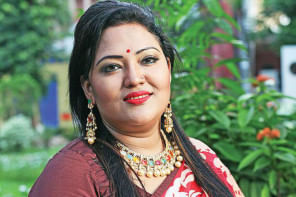Papal conclave: The voting process
Cardinal Electors: 133 cardinals under age 80 gather in the Vatican, staying in Santa Marta guesthouse under strict secrecy rules.
Opening Rituals: They attend mass, gather in the Pauline Chapel to pray, then proceed to the Sistine Chapel where the conclave officially begins.
Oath & Isolation: Cardinals take an oath of secrecy and commitment, and all non-electors leave the chapel upon the command "extra omnes."
Ballot System: Ballots are distributed; electors write their chosen candidate's name anonymously and submit it in a ceremonial urn.
Vote Counting: Scrutineers count and record votes; revisers double-check accuracy. Two-thirds majority is required to elect a pope.
Voting Rounds: Two voting sessions occur daily. A candidate has to secure two-thirds of the votes.
If voting continues for three days without a winner, there is a day of prayer, reflection and dialogue. If there is no winner after another seven ballots, there is another day of pause.
If the cardinals reach a fourth pause with no result, they can agree to vote only on the two most popular candidates, with the winner requiring a clear majority.
Smoke Signals: Ballots are burned after each round—black smoke signals no decision, white smoke indicates a new pope.
Election Confirmation: When a cardinal accepts the election, he becomes pope immediately after giving his consent.
Papal frontrunners
Cardinal Luis 'Chito' Antonio Tagle, 67
Some observers believe the future of the church's leadership lies outside the traditionally elected class of Italian cardinals. Tagle, from the Philippines, might suit the cardinals who want that growth to be more visible. The country is the most Catholic in the world, with 80 percent of its 100 million people identifying as Catholics. If elected, Tagle would be the first Asian pope. Tagle currently leads the church's evangelisation programmes from the Vatican.
Cardinal Pietro Parolin, 70
Italian and present Vatican secretary of state, Parolin's background and position within the church mean he has a strong chance of being considered for pope. He has held the number two position in the Vatican since 2013. With diplomatic stints for the church in Nigeria, Mexico, Spain and Italy, he is regarded as a skilled, stable hand on the world stage.
Cardinal Peter Kodwo Appiah Turkson, 76
Of three prominent African frontrunners, Turkson, who hails from Ghana, is seen as the more moderate and, thus, more suited to diplomacy. The cohort of African cardinals is, in general, regarded as quite conservative, particularly when it comes to the position of women in the church and same-sex marriage. Experts previously marked Turkson as a favourite in 2013.
Cardinal Peter Erdo, 72
Described as cautious and risk-averse, the Hungarian priest is a respected lawyer and staunch conservative who is likely to have backing from those seeking a change of approach from Pope Francis's style of leadership. The priest was viewed as a favourite in 2013, when he was 60 years old, but did not gain strong backing. At the time, observers said he was seen as too young.
Cardinal Michael Czerny, 78
Originally from Czechoslovakia but raised in Canada, the cardinal leads the social justice operations of the Vatican. He was appointed by Pope Francis and is, like him, a Jesuit – an arm of the church known for its focus on education, missionary work and charitable activities. The two men were considered to be close. Czerny has worked in Africa and Latin America and founded the African Jesuit AIDS Network. Experts say it is possible Czerny will appeal to progressives in the church, but there are doubts about whether the College would immediately vote for another Jesuit pope.

 For all latest news, follow The Daily Star's Google News channel.
For all latest news, follow The Daily Star's Google News channel. 



Comments